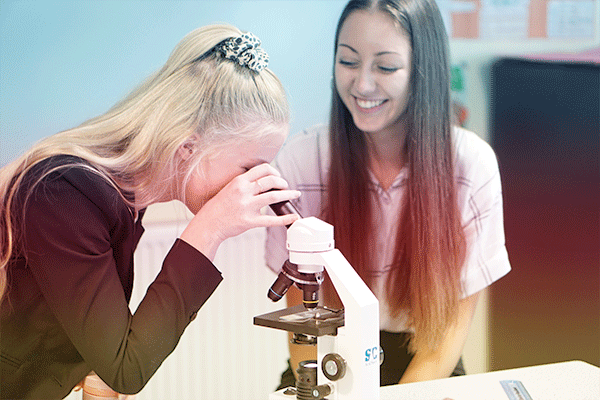Equality Statement and Objectives
King Edward VI Foundation Public Sector Equality Duty (PSED) Statement
This statement sets out the King Edward VI’s Foundation’s commitment to the PSED and the expectations of each of our Academies, our Independent Schools, and the Foundation Office to our pupils, our staff and to our communities to encourage the development of a strong foundation of equality, diversity, and inclusion practice.
1. Aims
Each school will meet its obligations under the PSED by having due regard when making any decisions or implementing policies to the need to:
-
Eliminate discrimination and other conduct that is prohibited by the Equality Act 2010
-
Advance equality of opportunity between people who share a protected characteristic and people who do not share it
-
Foster good relations across all characteristics – between people who share a protected characteristic and people who do not share it
At King Edward VI Five Ways School:
We will seek to eliminate discrimination and other unwarranted conduct that is prohibited by the Equality Act by:
-
Maintaining robust policies
-
Regular training on the Equality Act 2010
-
Discussing responsibilities at staff and Governor meetings
We seek to advance equality of opportunity by:
-
Removing or minimising disadvantages suffered by people which are connected to a particular characteristic
-
Taking steps to meet different needs of people who have a protected characteristic
-
Encouraging participation when it is disproportionately low
We seek to foster good relations by:
-
Including aspects within the curriculum which promote tolerance and friendship
-
Ensuring awareness of behaviour and anti-bullying policies
-
Engaging with the local communities
2. Responsibilities
Our schools make themselves as accessible as possible to all pupils, whatever their background or circumstances, by offering an environment that motivates staff and students and promotes productivity, excellence, and sustainable growth.
We are opposed to all forms of prejudice and have a zero-tolerance approach.
Every person in our organisation is responsible for creating and sustaining an inclusive environment based on mutual respect and is given the tools and help to do this. No one, including any pupil, prospective pupil, or other member of the school community will be discriminated against, harassed or victimised because of :
-
Age
-
Disability
-
Gender reassignment
-
Marital or civil partner status
-
Pregnancy or maternity
-
Race
-
Religion or belief
-
Sex
-
Sexual orientation
All schools will have clearly defined procedures for addressing incidents of a potentially prejudicial, bullying, or discriminatory nature and to ensure that these procedures are available for staff and pupils to obtain.
3. Guiding Principles
In fulfilling the legal obligations referred to above we are also guided by the following nine principles:
-
Principle 1: All learners are of equal worth
-
Principle 2: We recognise and respect difference
-
Principle 3: We foster positive attitudes and relationships, and a shared sense of cohesion and belonging
-
Principle 4: We observe good equalities practice in staff recruitment, retention, and development
-
Principle 5: We aim to reduce and remove inequalities and barriers
-
Principle 6: We consult widely
-
Principle 7: Society should benefit
-
Principle 8: We base our policies and practice on sound evidence
Principle 9: We work towards measurable equality objectives

4. School’s Accountabilities and Objectives
All schools will take responsibility to appropriately engage with equality diversity and inclusion legislation/statutory duties and responsibilities to ensure that the guiding principles listed above are
adopted.
In line with our obligations of the PSED, the Foundation will create and publish specific and measurable equality objectives, based on the feedback we have received from schools and pupils and consultations and any evidence that we have collected and published. Schools will also publish their own equality objectives in line with the PSED for their schools.
The objectives that we identify take into account national and local priorities and issues as appropriate.
We keep our equality objectives under review and report annually on progress towards achieving them.
At King Edward VI Five Ways our school’s objectives are as follows:
-
To promote equality, diversity and inclusion actions across our staff body. This will be achieved through training for staff to eliminate any unconscious bias in the recruitment process and further CPD on diversity, equality and inclusion, to be completed before the beginning of the next academic year.
-
To enable students to understand, appreciate and respect difference in the world and its people, celebrating the things we share in common across cultural, religious, ethnic and socio-economic communities. This will be achieved through:
-
The development of new student societies, inviting open membership, to better represent our diversity and to support all to thrive and flourish.
-
The development in the use of form time, the ‘Learning for Life’ curriculum and the Well-Being programme to facilitate smaller and safer group forums for discussion of inclusion issues in our school.
-
The development of a ‘Global Voices’ programme for the school year that encourages and supports the sharing of personal stories, hosts inspirational leaders and figures from a variety of communities, and promotes the knowledge and understanding of our diverse cultures, history and heritage through assemblies, events and a celebration of food.
-
A full review of the curriculum, supported and informed by leading academics from local universities, with the aim of promoting Five Ways as a diverse and inclusive school.
-
-
To develop a workforce that reflects the diversity of our community at all levels within the organisation
-
To further develop student and staff wellbeing and promote positive mental health